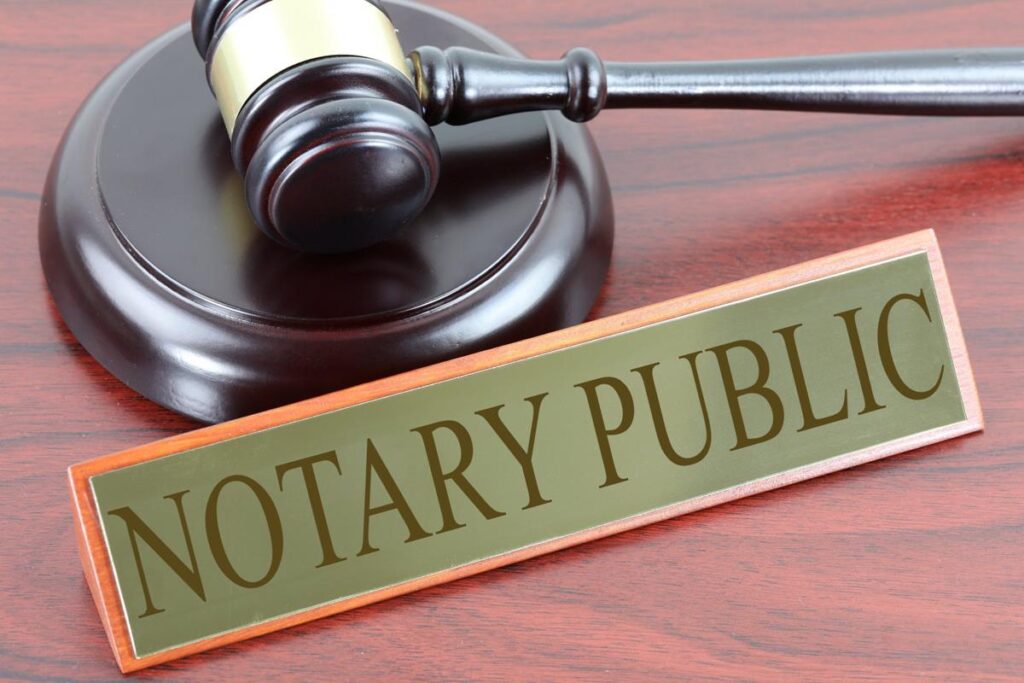When most people think of a notary public, they picture a simple act: a stamp, a signature, a handshake, and the job is done. But behind that small act lies a tightly controlled process governed by state laws and professional ethics. Here in Florida, as in most states, notaries are essential gatekeepers of trust and authenticity in legal and financial transactions – serving as a safeguard against fraud, invalid documents, and missteps that can cost time and money. However, there are specific and critical limitations placed on what they can and cannot do. So – what can a notary not do?
In this article, you will learn in detail why some restrictions exist, and how recognizing these boundaries can ensure smoother, legally compliant transactions in the future.
By the way, if you’re in Orlando or anywhere in Florida, our team at Mobile Notary Orlando is here to help you navigate notarization with precision and peace of mind. Keep up!
Read as well: Does a will have to get notarized? A thorough analysis by state
What can a notary not do?
Many people assume that a notary is a catch-all legal assistant, capable of guiding them through paperwork, answering legal questions, or validating any document. That assumption, though common, is risky. The most important reason to understand what a notary cannot do is that overstepping these limits can invalidate documents or expose all parties to legal consequences.

Notaries are public officials, not legal advisors, document drafters, or representatives of the state in every matter. Their role is neutral, focused on identity verification and witnessing signatures. The boundaries exist to protect the public and the integrity of every notarization, as you’ll see down below.
1. Legal advice: the line not to cross
Notaries cannot explain legal terms, recommend whether or not to sign a document, or give direction on which document to use in a legal situation. Their role is neutral, not advisory. This restriction is especially important in complex transactions like estate planning or property transfers, where legal misinterpretations can lead to disputes or invalid agreements.
At Mobile Notary Orlando, our notaries often encounter clients with questions like, “Is this contract okay to sign?” or “Can you help me understand this clause?” While our notaries will always offer clarity on the notarial process itself, we are legally and ethically bound to redirect legal interpretation to a qualified attorney. This boundary is essential to protect both the notary and the client.
2. Drafting or completing legal documents
Another critical area where boundaries apply is document preparation – and drafting legal documents is near the top of the list here. Notaries are not attorneys, and creating or altering legal documents for clients would constitute the unauthorized practice of law. This includes drafting wills, contracts, deeds, affidavits, or filling in blanks on legal forms.
Even seemingly minor requests, like asking a notary to “just fill this in for me”, are not allowed. Our clients are encouraged to consult legal professionals to ensure every form is appropriately prepared before the notary appointment.
Don’t miss: What’s a certified copy? A guide on obtaining a legit document

3. Absence of the signer: why physical or verified presence matters
A fundamental rule in notarial work is the requirement of presence. In Florida, whether the notarization is done traditionally or through Remote Online Notarization (RON), the signer must be present physically or virtually in real-time. If someone asks a notary to notarize a document for an absent relative or colleague, the answer is unequivocally no. This is a central part of what a notary cannot do.
The mobile must ensure that every signer is either in the same room as the notary or visible through an authorized RON platform, where audio and video communication is recorded and verified. There are no exceptions. This rule prevents fraudulent activity and ensures the person signing understands and agrees to the document’s content.
4. Working outside of jurisdiction or certifying certain documents
This whole story also involves recognizing jurisdictional and procedural limitations. A Florida notary cannot notarize documents outside of Florida – nor can they notarize or certify certain official records, such as birth certificates, marriage certificates, or court-issued documents. Those must be obtained directly from the issuing authority.
At Mobile Notary Orlando, we frequently assist clients in determining whether their documents are eligible for notarization. When international use is involved, clients often need an apostille, which is processed through the Florida Department of State, not a notary. This prevents time-consuming errors and keeps your paperwork on track.
5. Ethics and integrity: the rules cannot be bent
Ethical violations are not minor slip-ups: they are serious offenses that can result in penalties or loss of commission. This includes backdating a document, notarizing incomplete paperwork, or failing to refuse service when necessary. These are key examples of restrictions.

For instance, a notary cannot sign and date a certificate as if a notarization occurred on a prior date. They cannot ignore obvious coercion or notarize for someone who lacks mental capacity. Nor can they proceed if the signer’s identification is insufficient or invalid. It’s not just about legal compliance – it’s about protecting every party involved.
6. Communication barriers and conflict of interest
Effective communication is essential in notarization: and notaries cannot proceed with a notarization if the signer and the notary cannot directly communicate. This means that family members or parties with a vested interest cannot serve as translators. The signer must either speak the same language as the notary or use a certified, impartial interpreter.
Additionally, as we discuss in depth in this other guide, a notary cannot notarize documents for close family members or any transaction where they have a financial interest. This protects the impartiality required by law.
How Mobile Notary Orlando helps you stay compliant
Understanding what a notary can’t do is not just academic: it has real-life implications. At Mobile Notary Orlando, our notaries are trained to uphold every boundary set by Florida law. Whether you’re signing healthcare directives, finalizing real estate transactions, or executing business agreements, our notaries ensure the process follows every legal protocol.
Our team travels to homes, offices, hospitals, and anywhere you need us throughout Central Florida. We help clients avoid common pitfalls by ensuring documents are complete, signers are properly identified, and procedures are followed exactly as required.
We don’t just stamp documents – we guide you through the process with clarity and precision, always respecting the lines we’re not allowed to cross.

Take the next step with us
By now, the answer to what a notary cannot do should be clear. Notaries are crucial facilitators of legal and financial transactions, but their power has defined limits. These boundaries: no legal advice, no document drafting, no notarizing without presence, no jurisdiction over certain records, and strict ethical standards are not obstacles. They’re protections. For you, for your documents, and for the trust that notarization is supposed to provide.
If you’re in Orlando or anywhere in Florida and need dependable, legally sound notarization services, reach out to Mobile Notary Orlando today. Let our experienced professionals bring the notary to you without the guesswork, without the delays, and always with integrity!






